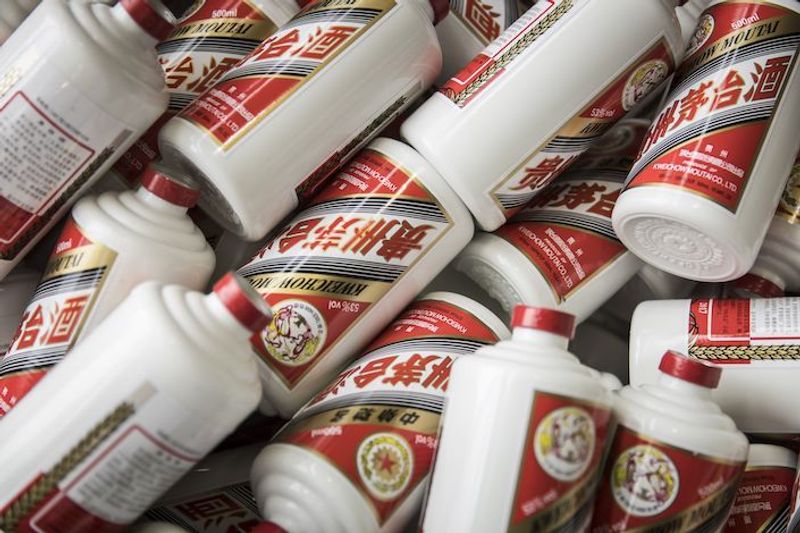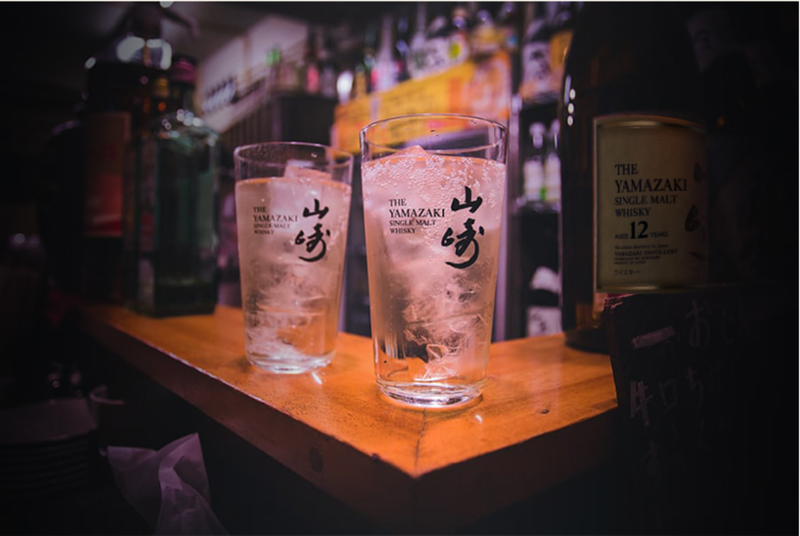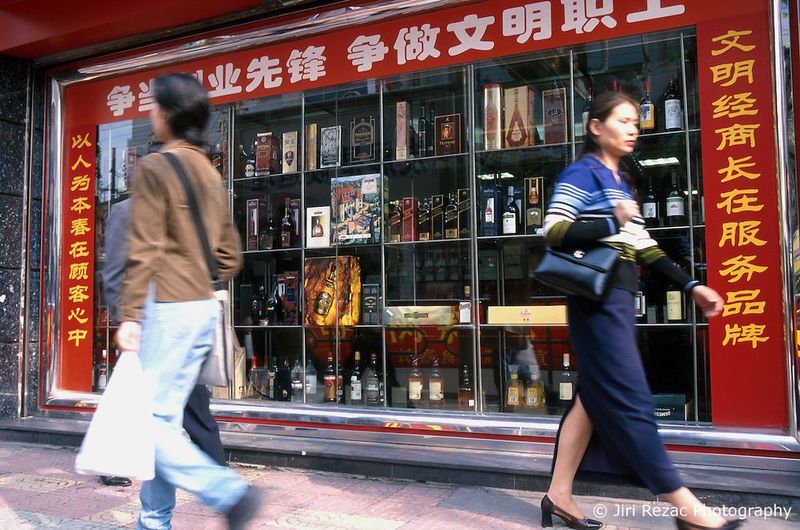icon
password
Multi-select
tags
ID
type
status
slug
summary
category
date
Author
URL
Compared with fashionable Japanese wine, the image of Maotai and other famous Chinese wines is too rustic.
Not long ago, Ji Keliang, former chairman of Moutai or Maotai, said in an interview program: “Young people do not drink Maotai because they are not yet old.” They are still playing in their 20s. They are a group of children who are not sensible enough to know that they need good wine. “
The comments sparked some discussion on the Chinese Internet. Some middle-aged people came out to help the old man, saying that Maotai was too expensive for young people to buy. But more young people said that even if they were older, they would never drink Maotai even if they could afford it. Some of them just hate to be represented and predicted by others, but more people simply express their contempt for Chinese liquor culture.
They say that China’s liquor culture is to force others to drink and get others drunk, which is a barbaric act of the Chinese people in the past, and today’s young people will not inherit it.
Perhaps the media noticed this tendency, and a few days later, a piece of social news about liquor once again sparked a heated debate. At a company party, a new bank employee, or a recent graduate, said he didn’t know how to drink when his boss made a toast, and finally didn’t drink. As a result, he was ridiculed by others, a boss slapped him in the face, and several colleagues continued to insult him. The young man angrily exposed all this, which aroused one-sided sympathy and support from netizens.
Why do online netizens support and offline colleagues insult? We need to understand what liquor means to Chinese people. In fact, as a country less than 80 years after the founding of the people’s Republic of China, the liquor culture of the people’s Republic of China is undergoing earth-shaking changes. Liquor, which represents Chinese liquor culture in the eyes of many middle-aged and old people, has now become a “dross” in the eyes of young people.
Take the representative of Chinese liquor. Of course, young people cannot afford the stock of Maotai, and most young people cannot afford to buy a bottle of Maotai, but this does not mean that young people will worship it.
To be exact, the price of a share of Maotai is now as high as 1800 yuan, which means that you need to pay at least 180,000 yuan (more than $26,000) for a purchase of Maotai stock in China Stock Market. I believe that even in the United States, not everyone can easily trade such stocks. As for Maotai, the most standard bottle of “Feitian” Maotai, which contains 53% alcohol in 500ml (commonly known as “Moutai” in Chinese or better, and cheaper even if it is produced by the Moutai distillery, is not called “Maotai”). If you want to buy it at any time, the price can be as high as 3,000 yuan (more than US $400). Although the ex-factory price of Maotai is only 1499 yuan, few consumers can get Maotai at this price-because no dealer will sell it at such a cheap price.

Bottles of Moutai baijiu sit in a pile on the production line at the Kweichow Moutai factory in the town of Maotai in Renhuai, Guizhou province, China in 2017. Photographer: Qilai Shen/Bloomberg
Young people’s impression of Maotai stays on the replacement of cups for banquets for middle-aged and elderly people, as well as the extravagance and waste of civil servants and state-owned enterprises. Unfortunately, since the Chinese government strictly restricts the consumption of public funds, few young civil servants who have joined the workforce since 2013 have been able to drink “free” Maotai.
Of course, Maotai is not cheap, it implies the buyer’s spending power and property level. Most Chinese people will be very proud to take out a bottle of Maotai during the Spring Festival.
However, this is not the case in the eyes of young people. When drinking brandy, young people feel rich; when drinking good whisky, such as Yamazaki, young people think they are very fashionable; it is also good to drink cheap whisky, such as black square; and even drink cheap and low-grade Japanese sake. Young people don’t think there’s anything wrong with it.

Compared with fashionable Japanese wine, the image of Maotai and other famous Chinese wines is too rustic.
Maotai is more than 10 times more expensive than many medium-and low-end foreign spirits, but Maotai does not bring consumer pleasure to young people. In addition to Maotai, all kinds of famous Chinese wines with not low prices and good brands are also difficult to become social bargaining chips for young people. A typical scene: a Chinese under the age of 30 receives a cheap bottle of whisky at a birthday party, opens it and drinks it with ice. The host and guests are so happy that no one may notice that the bottle is actually very cheap. But if the young man receives a bottle of Wuliangye on his birthday, he may just smile awkwardly and throw it in the corner without even opening the package-opening a bottle of liquor at a party full of young people, which is already a bit strange in China.
The young man said that white wine tastes terrible.
This is probably the most simple reason. The bad taste is further subdivided into two reasons, one of which is that the liquor tastes too strong.
You are reading Panda!Yoo
A blog about modern Chinese culture and consumption trends. If you are interested in Chinese food, drinks, games, movies, novels, dramas, please follow us.
Join 1,565 other subscribers
The “taste” of liquor is actually the fragrance of liquor. Maotai, Wuliangye and even the relatively light Fen Liquor are too pungent in the mouth of young people compared with most foreign spirits (although in fact it is not necessarily, it mainly depends on consumers’ perception of alcohol). When young people eat and drink at the same time, what they need is a lively drink, not a powerful potion that directly fails the sense of taste.
To make matters worse, there are almost no scenes of Chinese spirits without food. In the eyes of most Chinese, the stronger the flavor of liquor, the more it needs to be paired with rich and delicious food. People who drink spirits alone at night are already very close to alcoholics, and young people don’t think about it at all.
Young people do not like the strong aroma that remains in the mouth and even in the nose, even if these aromas are actually the favorite of liquor lovers, but also the result of generation-by-generation research and development of liquor makers. In my personal drinking experience, the aftertaste of Chinese spirits is so strong that most foreign spirits are far less than it.
However, if the smell of wine is too strong, how to taste more delicious food? You smell like alcohol, how do you tell your girlfriend or mother when you get home? Dazzled by the smell of wine, how to quickly get out of the party and into the busy daily rhythm?
I can’t. Fast-paced young people are not compatible with the smell of alcohol that represents indulgence and laziness. If the aroma of a liquor is not prominent, such as cheap Erguotou, young people can still drink two sips.
Even in Chinese bars, Chinese seldom choose to drink Chinese Liquor directly (most Chinese drink foreign spirits or beer in bars). To a large extent, this is because the high-end products in liquor, such as Maotai and Wuliangye, are not suitable for drinking with ice cubes, which are neither good-looking nor delicious. And the “net drink” without ice, if you fill a cup, it is too expensive. What, you ask, “what if you just take a sip”? Unfortunately, in Chinese wine culture, liquor does not have the option of just taking a sip. If the host pours only a sip of wine to the guest, he will be ridiculed as “too poor”.
On the other hand, Chinese spirits with too strong flavor are not suitable for cocktails. To be sure, cheap Chinese spirits, such as Erguotou, are good for blending-but this wine lacks flavor and does not sell at a high price, so it can only be reduced to a less mainstream choice in bars.
Young people think that white wine tastes bad, the second reason is that it is spicy. Girls often reject all kinds of spirits for this reason, so it’s not just Chinese Liquor that girls don’t like.
But one characteristic of Chinese liquor makes it particularly prominent on the spicy issue: in the parity range, the irritation of liquor is especially unbearable for girls.
As the price goes up, the taste of spirits will become softer, and when we drink high-grade whisky, we don’t have to add ice. However, in the daily consumption scene, inexpensive products determine the ordinary citizens’ evaluation of a kind of wine. Some Chinese people accidentally drink Chinese Liquor at home when they are young, or are jokingly recommended by adults to taste Chinese Liquor. As a result, they are often frightened by spices and leave a psychological shadow for the rest of their lives.
If adults know that letting children taste Chinese Liquor will cost them a future drinker, they may think twice before committing similar behavior. Of course, in fact, this didn’t stop them from pushing the cup down in front of the children, smiling and saying, “Try it, it’s Sprite.”
No matter what provinces they are, they have seen annoying alcoholics in countless films, televisions and literary works, which should make us wary of all spirits, but only the alcoholics around us will make us the most annoying.
A typical Chinese scene: your father comes home at 2: 00 in the morning and knocks on the door to wake you and your mother, reeking of alcohol. As a result, mother and father quarreled in the middle of the night, with no trace of love in mother’s tone and no trace of rationality in father’s tone. When you were only 4 years old, you fainted from crying. The famous East Asian singer Jay Chou has a song called “Dad, I’m back”. The lyrics describe a terrible family tragedy caused by alcoholism.
One funny thing for almost all Chinese families: Your grandfather is still an alcoholic in his 70s. He was seriously ill and was admitted to the hospital. The doctor said it had a lot to do with alcoholism. Grandpa gradually returned to health during the treatment. when he got home, the first thing he did was to take out his bottle and ask you to wash his glasses.
For Chinese people with similar childhood shadows, do their fathers drink tequila and their grandfathers drink vodka? It’s so rare. So they will only put the blame on liquor. In a sense, liquor is also quite wronged.
What is even more embarrassing is that another part of the shadow of childhood continues into Chinese adulthood and even until we die-that is, the wine table culture unique to some provinces.
Let’s describe the “horrible persuasion” that Chinese people may encounter in a lifetime: when you graduate, a group of classmates in your class pour you wine, and you drink and vomit; you enter a traditional enterprise, such as a securities firm, and you help your leader block the other’s toast by helping him drinking wine at the company’s annual meeting. Drink and vomit again.
A few years later, you found a gastric ulcer and thought it would not work like this, so you switched to an Internet company.
[sociallocker id=”5614″]
The annual meeting of Internet companies is relatively quiet, leaders may still have to change cups, and marketing and sales are no different from traditional companies, but you are smart, you join the ranks of programmers, and you eat with programmers.
No one was interested in the high-priced liquor on the table, and everyone bowed their heads to pick up food. When you was half full, the big brother in the programmer said, “shouldn’t we have a drink?” You called the waiter and the table ordered two bottles of beer.
You are very satisfied, and you feel that you have stayed away from the table culture all your life, until one day when your relatives from Shandong Province came to Beijing to see you, you recalled these three uncles who were already in their 50s.
You want spirits to disappear from the earth, along with those bad habits.

CHINA SHANGHAI MAY99 – Passers-by walk past a Chinese Liquor store in downtown Shanghai. In recent years China’s economy has ‘opened up’ and allowed for the import and distribution of western products on the domestic market. jre/Photo by Jiri Rezac
I wonder if anyone has ever counted the proportion of unopened spirits at the annual meeting of Internet companies, according to my personal observation, it is not low.
If it is not a grand occasion such as the annual meeting, the general press conference, reception, thank-you meeting, and when it comes to table wine, the probability of liquor even appears is very low.
So what is the most common at various social dinners? It is a variety of alcoholic beverages with low degrees, such as cocktails. The host of the banquet wants the guests to have an active drink, but they don’t want them to get drunk and make a fool of themselves. Any guest who comes here for social purposes only wants to inquire about the news and make friends through drinking, and does not intend to reveal his true feelings and lose face in front of the public after drinking too much.
It is indeed common for people to share spirits at relatively private, small parties. But for those young Chinese who go to the big cities alone, where do they get private parties? Where do they have this kind of life?
The side effect of no life may be lack of emotion. You come to the company in order to make money, you hope the boss will not deceive and oppress you. You feel that loyalty is a remnant of the old society and a big lock for bundling employees. You are always ready to change jobs. In fact, three people at the grass-roots level of your company leave every month. When you get together with your colleagues, you ask him if he has found a next place, in fact, he has nothing to do with you. You won’t drink liquor with someone who has nothing to do with anything. Never.
If you want to have something in common with your colleagues, take a look at the types of your colleagues:
They are homely, slightly fat, and like to stay up late to play games. You can talk about the original wort concentration of beer and how bad Yanjing is. (Yanjing Beer is a more traditional beer brand in China, and its taste can no longer keep up with the times.).
They are intellectual women, and your knowledge of whisky will make them look approvingly, and a bottle of Yamazaki can open an interesting night talk.
They are little girls who have just graduated, so you’d better not even drink alcohol. At most, ask “does anyone want a pink mojito” in the company group when passing by KFC?
For Chinese young people, the status of liquor is so awkward.
[/sociallocker]
- Author:NotionNext
- URL:https://pandayoo.com/2020/09/02/what-do-chinese-people-think-of-chinese-liquor
- Copyright:All articles in this blog, except for special statements, adopt BY-NC-SA agreement. Please indicate the source!